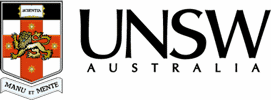Australia has some good course options to study for a Master of Commerce.

The best Master of Commerce degrees in Australia are available from the top business schools. These include Queensland University of Technology and UNSW Business School.
Quality indicators for a commerce masters degree include:
- size of the graduate business program (as a measure of popularity)
- a good selection of units and specialisations
- an undergraduate business program with high course ratings and graduate salaries
- tuition fees which, considering the quality of the course, represent value for money.
You can expect good teaching and useful content when studying for a Master of Commerce degree. Australian universities compete for postgraduate students. The best business schools deliver high quality courses that meet the needs and preferences of students.
Why Do an MCom Degree Course?
A Master of Commerce (MCom or MComm) is a 1.5 or 2 year postgraduate business course. It is not just open to business graduates, but university graduates of other disciplines (such as arts, engineering or science).
Doing an MCom degree course is a flexible way to study business. Programs can be general or specialised. You can normally adjust the mix of subjects as you move through the course.
If you don't have a business degree already
If you are a university graduate and completed a non-business degree, a Master of Commerce may be the ideal business program.
- An MCom is the postgraduate equivalent of a Bachelor of Commerce or Bachelor of Business.
- You do can foundation business subjects but also have the opportunity to specialise.
- You also can adjust what you study as you move through the course and identify academic strengths, weaknesses and interests.
If you have an undergraduate business degree
As a commerce or business graduate, you should have a good idea of what to expect in an MCom course. You are likely to quickly cover some of the content you've seen before but also do advanced studies in chosen subjects.
Master of Commerce versus MBA
In Australia, Master of Commerce and MBAs are perhaps the most popular business masters degrees. As an MCom holder, you may be perceived as having accounting and financial expertise. MBA degrees are associated more with management and leadership.
In truth, there is not a hard distinction between the degrees. For example, you can major in Marketing in MCom as well as MBA programs. You can study management in an MCom course and financial analysis in an MBA.
Which degree offers the biggest career advantage is unclear. Commerce degrees and MBAs are easily the most common degrees among CEOs. High performing business people usually possess both financial and team management skills.
One clear point of difference is price. The perceived value of an MCom, which is often seen as a practical degree, is only partly linked to the university you got it from. Tuition fees are reasonable and broadly similar across universities. With an MBA, your options range from cheap to very expensive.
Master of Commerce graduates will acquire the skills and knowledge to pursue high-level positions in industry or government, in areas relevant to their specialisation/s. For example, the degree can prepare you for positions in accounting, marketing or other specialist fields. It also gives you a thorough understanding of commerce for use in many business fields.
Students with little background in commerce can still reach an advanced level of academic study. The program provides an advanced and in-depth level of study in one or more business or commerce disciplines, such as accounting, finance or business information systems.
Australia's Best Master of Commerce Programs
The best Master of Commerce programs in Australia all offer a good learning experience.
- QUT and UNSW Business School all provide a great selection of courses. Plus you can study in a prime part of a major city.
- RMIT University allows you to study online from anywhere in Australia or overseas.
The best on-campus programs are also large in terms of student numbers. That shows the business schools are offering what students want, competing well against nearby universities.
Another factor in choosing a good MCom program is course duration. Generally, a shorter program is preferable because you get the qualification at a reduced cost in time and fees.
- The standard length of a business masters degree is 12 units, which represents 1.5 years (3 semesters) of full-time study.
- Some programs are as long as 16 units, though this may be reduced by recognition of prior learning.

QUT Master of Business
Queensland University of Technology (QUT) has the top postgraduate program in Queensland for business, commerce and management.
- QUT Business School has close to 3,500 postgraduate students.
- The School has a reputation for good teaching, with 85% - 90% course satisfaction rates among BBus students and recent graduates. (Source: Uni Reviews)
Master of Business students have 11 specialisations to choose from: accounting, advertising, applied finance, human resources, integrated marketing communication, international business, management, marketing, philanthropy, professional accounting and public relations.
UNSW Master of Commerce
The UNSW Business School has the strongest Master of Commerce program in the competitive Sydney market.
- The Business School is the largest in Australia for postgraduate study, with over 6,000 students.
- The School offers 12 specialisations.
A feature of the MCom program is flexibility.
- You can be given credit for previous business studies, of up to 4 units in the 12-unit program.
- To qualify for a major, you choose 6 specialised units in that field of study. Other units may be selected from diverse study areas.
Business and Commerce Specialisations
Master of Commerce degrees are available in many different disciplines (see the selection below) and you will probably be asked to nominate a specialisation when enrolling.
- A specialisation can be expressed as a major or as the degree itself. For example, a finance masters can be a Master of Commerce (Finance), Master of Business (Finance), or Master of Finance.
- Your specialisation is normally easy to change during the early stages of the program.
Enrolling students usually have professional experience and are clear about their preferred major.
- Gaining business experience before doing a masters is normally a good idea.
- With experience under your belt, you have better awareness of potential career paths.
- Experience also helps you relate theory and principles to the real world.
Non-business graduates also use masters studies to start or boost a business career. Most specialisations are suitable for students without a business degree or prior learning in the field.

Accounting
A Master of Accounting is for business and non-business graduates who want to develop accounting expertise. Earning a professional degree (often called a Master of Professional Accounting) makes you eligible to apply to be a Certified Practising Accountant or Chartered Accountant in Australia.
Economics
A Master of Economics is ideal for students with prior study in economics (or a related discipline with a strong analytical and mathematical focus). Economics training develops advanced analytic skills for working as a professional economist, often in government, large corporations or consultancy.
Finance
A Master of Finance prepares you for a career in the finance industry. You should have some background in the discipline before enrolling. Students learn about financial management, Australian and overseas markets, and derivative assets. You build skills in analysis, interpretation and forecasting.
Human resource management
A Master of Human Resource Management program is ideal for aspiring or current HR managers. You don't need an undergraduate business degree. Students study labour relations, managing people, motivating and rewarding employees, data analysis, and developing HR policies and practices.
Spend at least 4 or 5 years building up your resume at reputable firms. With the right combination of stellar work experience and a Master’s degree, there is a far greater chance of getting an important job and an excellent salary.
International business
A Master of International Business builds analytical, communication and management skills for working in the international business sector. Students acquire knowledge about corporate governance in a global environment, management strategy, cross-cultural impacts, and marketing across borders.
Management
A Master of Commerce (Management) degree is appropriate for business professionals who want to prepare for future management roles. Students learn analytical techniques, and management principles and practices in: business processes, consulting, and team and organisation leadership.
Marketing
A Master of Marketing degree prepares you for a career as a brand or product manager, business development manager, marketing consultant or marketing team manager. Students learn about brand strategy, consumer behaviour, business to business marketing, innovation and social marketing.
Supply chain management
A Master of Supply Chain Management is popular among industry professionals who want to gain a formal qualification in the discipline and build analytical skills. Managers work in supply and procurement, distribution and warehousing, operations and materials, and freight transport.


